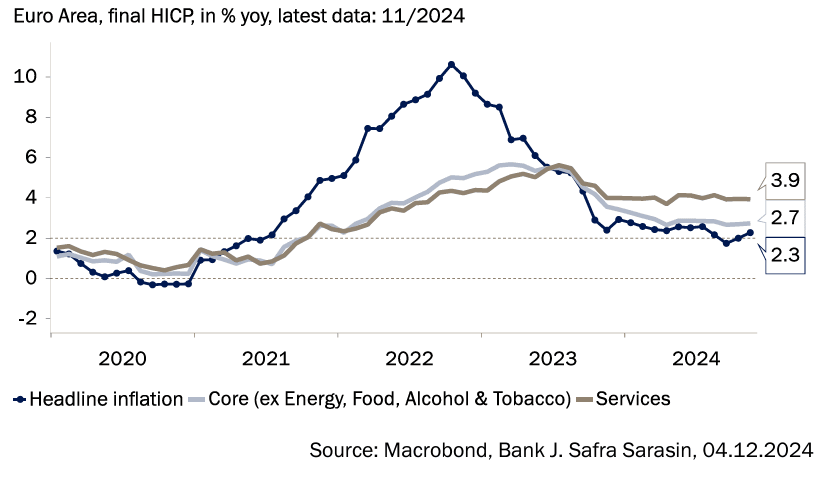Dovish ECB Cut to Keep Euro Exchange Rates Under Pressure
- Written by: Gary Howes

Image © European Central Bank
According to analysts, the European Central Bank (ECB) is expected to cut interest rates again next week by 25 basis points and send a 'dovish' signal.
Such a development would keep euro exchange rates under pressure as foreign exchange markets remain focussed on relative interest rate developments.
"While there is a strong case for the ECB to accelerate the pace of policy easing by delivering a 50bp cut next week, a majority of the Governing Council seems to prefer 25bp, which would bring the deposit rate down to 3.0%," says Andrew Kenningham, Chief Europe Economist at Capital Economics.
Markets already anticipate a 25bp cut, suggesting the move is already 'in the price', limiting the prospects of a big move in EUR.
Compare Currency Exchange Rates
Find out how much you could save on your international transfer
Estimated saving compared to high street banks:
£2,500.00
Free • No obligation • Takes 2 minutes
Instead, the guidance is what will matter for FX.
According to Capital Economics, the policy statement will signal that, with downside risks clearly mounting, monetary policy can shift to a more neutral stance before long.
"And we continue to think the ECB will cut its deposit rate further than investors anticipate next year," says Kenningham.
Should this be conveyed in the ECB's guidance and forecasts, the Euro could end the day lower than where it started.
🎯 GBP/EUR year-ahead forecast: Consensus targets from our survey of over 30 investment bank projections. 📩 Request your copy.
Dr. Karsten Junius, Chief Economist at J. Safra Sarasin, says the Eurozone needs lower rates and the ECB will outcut other central banks.
"Political uncertainty looms large in France and Germany, the euro area’s two most important economies. An erosion of competitiveness and the need for structural adjustment weighs heavily, leaving them ill-prepared to confront a more assertive US administration. Forward-looking economic indicators also provide no reason to be optimistic," he says.
November PMI data were below the expansion level of 50, dashing hopes of a swift economic recovery.
Above: Eurozone inflation is back to normal levels, says J. Safra Sarasin.
"In our view, higher unemployment is all but certain next year. The euro area needs lower rates to revive investment and provide support for the ailing economy," says Junius. "The ECB will cut policy rates by 150bp to 1.75% by the end of 2025."
That would be 75bp more than what is anticipated for the Fed. Money market pricing meanwhile shows the Bank of England will deliver between 75bp and 100bp worth of cuts next year, which is also less than the ECB.
Relative rate differentials, therefore, argue for a weaker Euro-Pound and Euro-Dollar exchange rate next year.
That being said, there is already a lot of bad news incorporated in the Euro following recent political turmoil in France and Germany.
In addition, Eurozone data has consistently underwhelmed, lowering the bar to further negative surprises.
"We believe that investors have become excessively bearish on the Eurozone outlook. We also see less scope for contagion from the OAT selloff and doubt that the ECB would meet the very dovish market
expectations. We thus think that many negatives are already in the price of the oversold and undervalued EUR," says Valentin Marinov, Head of G10 FX Strategy at Crédit Agricole.
Euro-Dollar and Euro-Pound have both shown signs of basing, which hints that any negative reaction to Thursday's ECB decision might ultimately be limited.
Instead, bigger moves lower in the Euro might only be realised in 2025.





